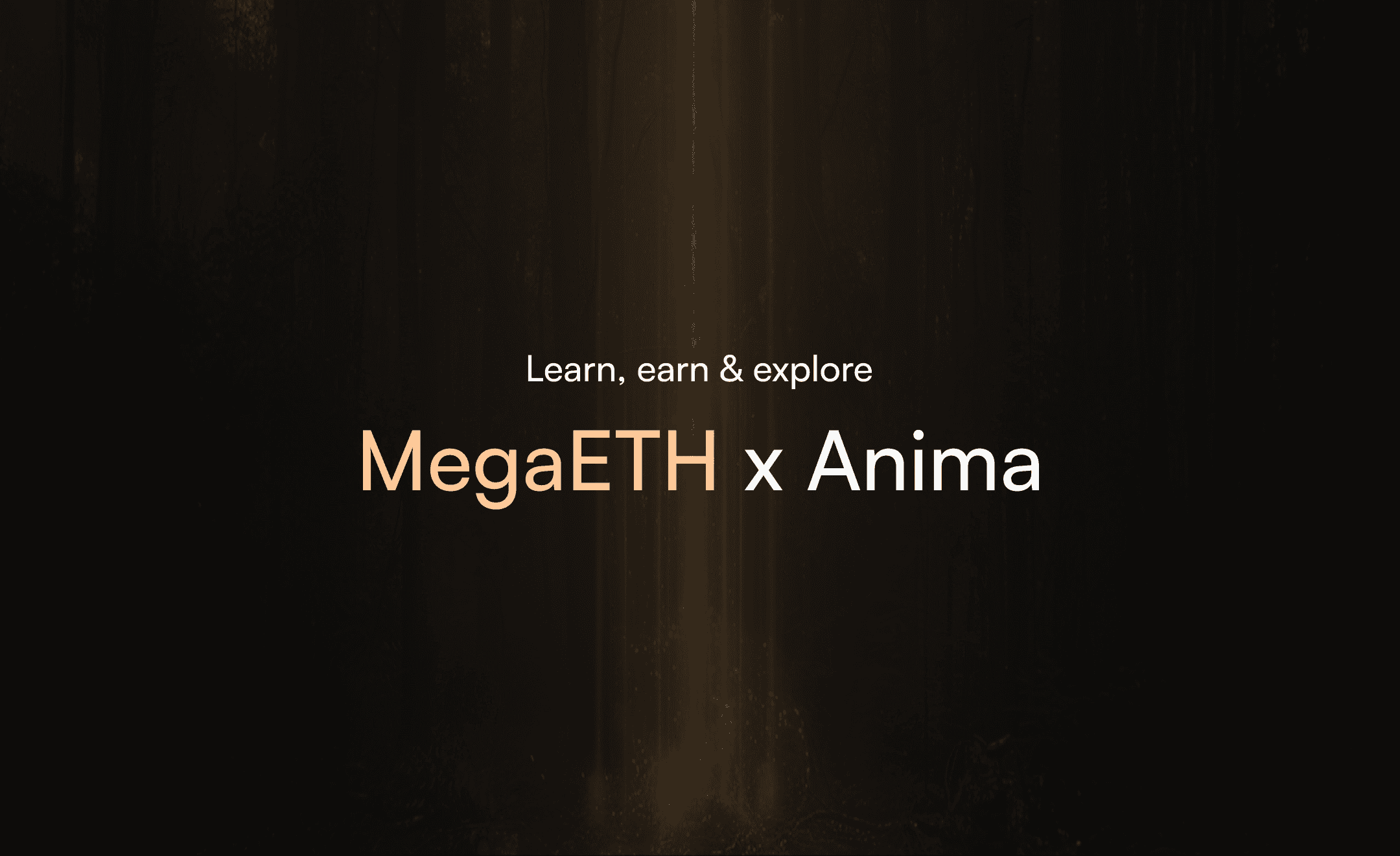Proof of Personhood (PoP): The Key to Fair and Secure Airdrops
Anima's Proof of Personhood (PoP) technology offers a privacy-preserving solution by allowing projects to create Fairdrops that engage real community members without complicated rules or extensive verifications.
3 min
read





Creating Effective Airdrops
Airdrops are a popular tool for web3 projects to engage with their community, attract new members, and support development and awareness. An example of an airdrop that truly nailed it is Uniswap's airdrop. By keeping their requirements simple and straightforward (i.e., participants had to just use their decentralized crypto asset exchange platform prior to a certain date), they were able to build a robust community of supporters and reignite interest in the entire airdrop model.
But to create a positive loop, Airdrops have to be implemented carefully. And that’s easier said than done. Have you ever participated in an airdrop and felt frustrated because you didn't know what to do in order to receive it? Airdrops can be difficult to execute effectively, as they often require extensive verification or complicated rules to distinguish engaged members from airdrop hunters, bots, or malicious actors.
Anima's Proof of Personhood (PoP) technology offers a privacy preserving solution to this problem by allowing projects to create "Fairdrops" that engage real community members without complicated rules or extensive verifications
PoP: The Solution to Airdrop Woes
PoP is an innovative technology that can be leveraged to verify only real people are rewarded in token distribution events, ensuring a fair distribution of tokens among the community and preventing tokens from falling into the wrong hands.
Using PoP, members go through a face scan, which creates a unique "Face Graph" for each person and guarantees bots elimination. The Face Graph is an encrypted vector graph and cannot be used to recreate someone's face, ensuring that personal information is kept private. Enforcing the requirement of PoP for whitelisting in airdrops eliminates bots and duplicate users, making the distribution more secure and fair. And with fairdrops comes real engagement and a sense of community ownership.
A More Efficient and Accessible Airdrop Eligibility Process
Eliminating bots or duplicate users relates to the Sybil attack challenge. And when you think about Sybil resistance, KYC could be considered as a good option. A few KYC verifications have been implemented for some airdrops to prevent malicious behavior. But traditional KYC verification methods for airdrops can be tedious and time-consuming, and also raise privacy concerns for many users. In the end, it’s a bit overwhelming for just an airdrop.
PoP is privacy preserving, instant, and therefore scalable. It’s a more convenient method of verifying a user's status that focuses on proving the user's existence as a person, rather than requiring them to disclose their full identity.
PoP also eliminates the need for complex airdrop rules, as it rewards truly engaged members of the community. Since complex rules can deter potential participants and make the token distribution process difficult for projects and individuals, PoP allows for a switch in the rule benefit. The protocol team can imagine several levels of rules associated with different levels of rewards. The rule is no longer a barrier to entry for sybil attackers but a way to evaluate users expertise and engagement. With this in hand, you can attract newcomers while making your airdrop a structuring element of your onboarding journey.
PoP's Potential Applications Beyond Airdrops
PoP can be utilized to combat fraudulent activities, provide fair access to services, and increase engagement in other areas such as DAO Governance. PoP is a vital method of verification that serves as more than just a means of ensuring fairness and security in token distribution events, such as airdrops.
PoP could be the key to unlocking new possibilities for the crypto industry. With this sybil resistance technology, we foresee a parallel and complementary approach to the existing capital-oriented web3. A more user-centered logic fostering innovation by attracting a wider audience to the world of cryptocurrency.
Want to test your first NFT Fairdrop yourself? Create your PoP and claim your NFT here
Creating Effective Airdrops
Airdrops are a popular tool for web3 projects to engage with their community, attract new members, and support development and awareness. An example of an airdrop that truly nailed it is Uniswap's airdrop. By keeping their requirements simple and straightforward (i.e., participants had to just use their decentralized crypto asset exchange platform prior to a certain date), they were able to build a robust community of supporters and reignite interest in the entire airdrop model.
But to create a positive loop, Airdrops have to be implemented carefully. And that’s easier said than done. Have you ever participated in an airdrop and felt frustrated because you didn't know what to do in order to receive it? Airdrops can be difficult to execute effectively, as they often require extensive verification or complicated rules to distinguish engaged members from airdrop hunters, bots, or malicious actors.
Anima's Proof of Personhood (PoP) technology offers a privacy preserving solution to this problem by allowing projects to create "Fairdrops" that engage real community members without complicated rules or extensive verifications
PoP: The Solution to Airdrop Woes
PoP is an innovative technology that can be leveraged to verify only real people are rewarded in token distribution events, ensuring a fair distribution of tokens among the community and preventing tokens from falling into the wrong hands.
Using PoP, members go through a face scan, which creates a unique "Face Graph" for each person and guarantees bots elimination. The Face Graph is an encrypted vector graph and cannot be used to recreate someone's face, ensuring that personal information is kept private. Enforcing the requirement of PoP for whitelisting in airdrops eliminates bots and duplicate users, making the distribution more secure and fair. And with fairdrops comes real engagement and a sense of community ownership.
A More Efficient and Accessible Airdrop Eligibility Process
Eliminating bots or duplicate users relates to the Sybil attack challenge. And when you think about Sybil resistance, KYC could be considered as a good option. A few KYC verifications have been implemented for some airdrops to prevent malicious behavior. But traditional KYC verification methods for airdrops can be tedious and time-consuming, and also raise privacy concerns for many users. In the end, it’s a bit overwhelming for just an airdrop.
PoP is privacy preserving, instant, and therefore scalable. It’s a more convenient method of verifying a user's status that focuses on proving the user's existence as a person, rather than requiring them to disclose their full identity.
PoP also eliminates the need for complex airdrop rules, as it rewards truly engaged members of the community. Since complex rules can deter potential participants and make the token distribution process difficult for projects and individuals, PoP allows for a switch in the rule benefit. The protocol team can imagine several levels of rules associated with different levels of rewards. The rule is no longer a barrier to entry for sybil attackers but a way to evaluate users expertise and engagement. With this in hand, you can attract newcomers while making your airdrop a structuring element of your onboarding journey.
PoP's Potential Applications Beyond Airdrops
PoP can be utilized to combat fraudulent activities, provide fair access to services, and increase engagement in other areas such as DAO Governance. PoP is a vital method of verification that serves as more than just a means of ensuring fairness and security in token distribution events, such as airdrops.
PoP could be the key to unlocking new possibilities for the crypto industry. With this sybil resistance technology, we foresee a parallel and complementary approach to the existing capital-oriented web3. A more user-centered logic fostering innovation by attracting a wider audience to the world of cryptocurrency.
Want to test your first NFT Fairdrop yourself? Create your PoP and claim your NFT here
Our latest articles














